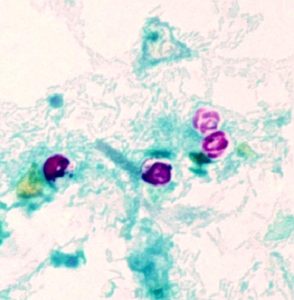By NewsDesk @bactiman63
Swedish health officials, aka Folkhalsomyndigheten have reported an increase in the parasitic infection, cryptosporidiosis in recent weeks, particularly in November.

About half of the country’s regions have reported cases in all ages, but primarily in adults. Most cases are seen in the Stockholm region.
The Public Health Agency and the National Food Agency have started an outbreak investigation to identify if there are one or more common sources of infection that are unknown so far. As part of the investigation, cases are interviewed about what they ate and drank before they became ill.
Cryptosporidiosis is a diarrheal disease caused by a microscopic parasite called Cryptosporidium. The illnesses spread when people come into contact with fecal matter from an infected person or animal. The parasite is able to survive outside the human body for long periods of time and is highly resistant to chlorine.
Symptoms of cryptosporidiosis often include watery diarrhea, stomach cramps, vomiting, loss of appetite, weight loss and low-grade fever. People typically become ill about a week after exposure, but this can range from two to 14 days. Most people recover in one to two weeks, but they will continue to shed the parasite in their stools for at least two weeks after symptoms end. Approximately 10 percent to 15 percent of cases require hospitalization for their illness. Illness can be especially severe or prolonged in people with weakened immune systems.
- Asian longhorned tick: FFAR grant aims to halt spread
- Salmonella prompts recall of Quest Beef Cat Food
- Iowa reports 1st flu deaths of the season
- Georgia: More measles confirmed in Cobb County
- Scombrotoxin fish poisoning prompts FDA recommendation to discard tuna
- University of Maryland and DOD collaborate to study Tick-borne Infections using 3-D models of human blood vessels

